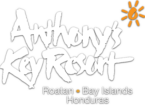Honduras is a small peaceful Central American country bordered by Guatemala, El Salvador and Nicaragua. Honduras, the second largest country in Central America, is almost 112,000 square kilometers (roughly the size of Tennessee) of mountains and coastal plains. Dozens of rivers cascade down from the mountains to its wide Caribbean coast and narrow Pacific plain.
Honduras’ Bay Islands, including Roatan, lie off its Caribbean coast and are the focal point of Honduras’ growing tourism industry. Here divers and snorkelers indulge in the splendor of the hemisphere’s longest barrier reef system.
Unveil the Beauty of Honduran Beaches and Traditions
Surrounded by stunning beaches, shimmering turquoise waters, and untouched natural splendors, Honduras and the Bay Islands offer an unparalleled experience for travel enthusiasts. These captivating destinations allow visitors to delve deep into the ancient and colonial worlds, providing a rich cultural immersion that leaves a lasting impression. Catering to the most adventurous and active travelers, the region promises a diverse array of experiences, from exploring dense rainforests and uncovering hidden archaeological sites to discovering vibrant local communities and their time-honored traditions. In Honduras and the Bay Islands, every journey becomes an unforgettable adventure.
About Honduras History
Pre-Columbian Honduras was home to at least six known groups, including the advanced Maya, the Lencas and the Miskitos. The Maya were dominant on the mainland of Honduras, where their ruins can still be found.
Honduras’ history changed when Columbus explored the area in 1502. While the Spanish settled the region, both the Spanish and the English fought for dominance in the region for several centuries. In 1821 Honduras, Mexico and three other Central American nations declared its independence from Spain. In 1838, Honduras left this federation and became independent.
About Honduras Today
The capital of Honduras is Tegucigalpa, located in the southwestern part of the country. Its population is roughly 8 million people and the official language is Spanish but many Amerindian dialects are also spoken, along with English in the Bay Islands.
Industries and natural resources in Honduras include sugar, coffee, textiles, clothing, fishing, timber, gold, silver, copper and metals.
Today Honduras is a democratic constitutional republic.
Roatan Museum: Honoring Honduras History and Culture
In 1992, Cheryl Galindo, wife of resort owner Julio Galindo, created the Roatan Museum. The museum is housed in the RIMS facility and created with the guidance and expertise of the Honduran Institute of Anthropology. Through artifacts, murals, maps and documents, the museum reflects the culture and history of the Bay Islands.
